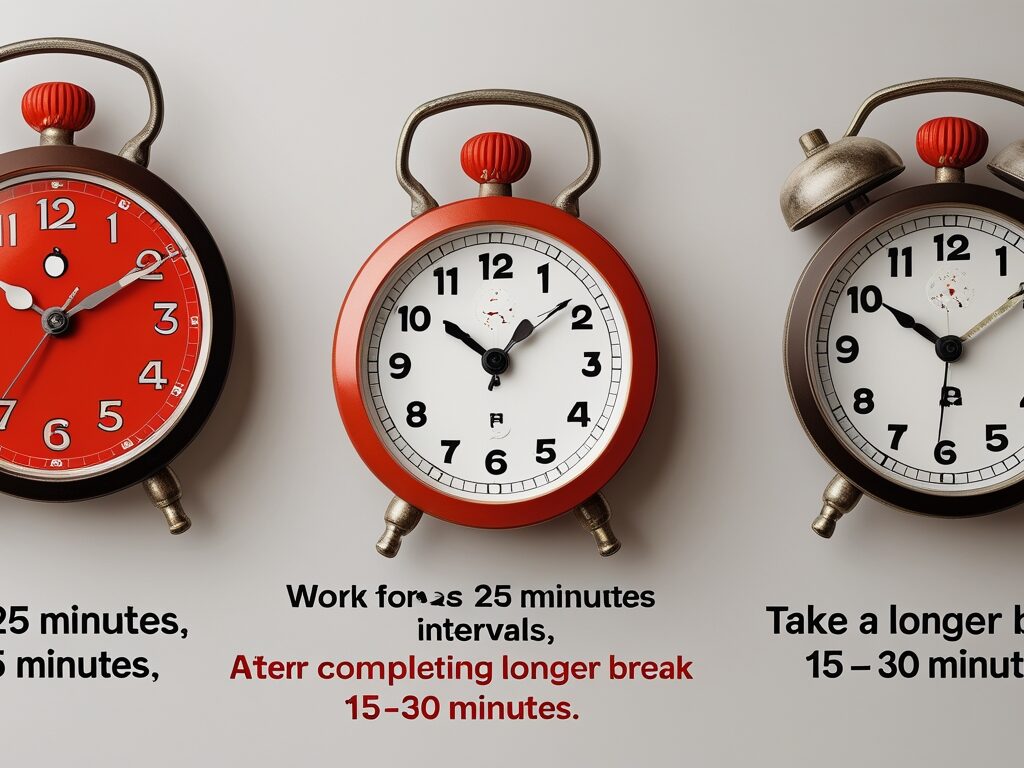Time Management Tips for Students – management is a crucial skill for students. Whether you are in high school, or college, or preparing for an exam like NEET, how you manage your time can significantly affect your academic performance and overall well-being. Students can boost their productivity, reduce stress, and achieve better results by learning and applying effective time management tips for students. This article will explore practical time management tips for students that every student can use to make the most of their study time. Remember, these time management tips for students can transform your academic journey.
Table of Contents
Why Time Management is Important for Students
As a student, your days are filled with assignments, lectures, exams, and extracurricular activities. Without proper time management, it’s easy to feel overwhelmed. Learning to prioritize tasks, organize your schedule, and avoid procrastination can help you focus on what’s important. Proper time management:
Incorporating these time management tips for students into your routine can lead to increased efficiency and lower stress levels.
- Helps you stay organized and reduces stress.
- Increases productivity by allowing you to focus on one task at a time.
- Provides more free time for relaxation and hobbies.
- Improves your ability to meet deadlines and achieve academic success.
1. Set Clear and Achievable Goals
Using time management tips for students effectively means adapting them to fit your unique study style and preferences.
These time management tips for students not only enhance academic performance but also contribute to a balanced life.
The first step in managing your time effectively is setting clear, achievable goals. Break down long-term goals into smaller, more manageable tasks. For example, if your goal is to prepare for a major exam, break down your study schedule into specific subjects and topics to be covered each week.
How to Set SMART Goals

Implementing these time management tips for students can help you juggle your studies and personal life more effectively.
With these time management tips for students, breaking tasks down will prevent feeling overwhelmed and ensure steady progress.
- Specific: Your goal should be clear and specific (e.g., “I will study biology for 2 hours every day”).
- Measurable: Track your progress (e.g., “I will complete 3 chapters of biology in a week”).
- Achievable: Make sure your goals are realistic (e.g., “I can study for 2 hours each day”).
- Relevant: Ensure your goals are related to your long-term objectives (e.g., preparing for an upcoming test).
- Time-bound: Set deadlines for your goals (e.g., “I will finish my homework by 6 PM every day”).
2. Create a Time Table or Study Schedule
A well-organized timetable is one of the best time management tools for students. A study schedule helps you allocate time to specific tasks, making it easier to focus and stay on track.
How to Create an Effective Study Schedule
- Plan Ahead: Allocate specific time blocks for studying each subject.
- Prioritize Tasks: Focus on high-priority tasks first, such as assignments or exams that are due soon.
- Be Flexible: Life can be unpredictable, so make sure to leave some buffer time in case something unexpected comes up.
- Use Technology: Apps like Google Calendar or time-management tools like Trello can help you create and track your schedule digitally.
Applying these time management tips for students allows you to dedicate time to both academics and hobbies.
3. Break Tasks into Smaller, Manageable Chunks
Large tasks can seem daunting and often lead to procrastination. Instead of tackling a big project all at once, break it down into smaller, more manageable tasks. This will make the project seem less overwhelming and allow you to make steady progress.
Integrating these time management tips for students into your routine can yield remarkable results in your studies.
For example, instead of saying, “I will study all of math today,” break it down into smaller tasks like “Review algebra for 30 minutes” or “Complete 10 practice problems.”
4. Eliminate Distractions
Distractions are one of the main reasons students struggle with time management. Whether it’s social media, friends, or noisy environments, distractions can cause you to lose focus and waste valuable time. To improve your time management:
- Turn Off Notifications: Keep your phone on silent or use apps like Focus Mode or Do Not Disturb to prevent distractions.
- Find a Quiet Study Space: Choose a quiet and organized study environment where you can concentrate fully.
- Set Boundaries: Inform your friends and family of your study hours so they know not to disturb you.
5. Use the Pomodoro Technique

The Pomodoro Technique is a simple yet effective time management method that involves working in intervals. The idea is to work for 25 minutes, followed by a 5-minute break. After completing four 25-minute intervals, take a longer break of 15–30 minutes. This technique helps maintain focus while reducing mental fatigue.
Benefits of the Pomodoro Technique
- Prevents burnout: By taking regular breaks, you give your brain a chance to rest.
- Improves focus: The short intervals keep your mind engaged without feeling overwhelmed.
- Enhances productivity: Regular breaks can improve overall efficiency.
6. Avoid Procrastination
Procrastination is a major time-waster. It can be tempting to delay tasks, but this only leads to unnecessary stress and last-minute cramming. To beat procrastination:
- Start with the Most Difficult Task: Tackle the hardest tasks first when your energy and focus are at their peak.
- Use the “Two-Minute Rule”: If a task will take less than two minutes, do it right away. This prevents small tasks from piling up.
- Set Deadlines: Even if a task doesn’t have a strict deadline, give yourself a time frame to complete it.
7. Stay Organized
Staying organized is key to managing your time effectively. Having a clutter-free workspace and organized materials will help you stay focused and productive.
- Organize Your Study Materials: Keep your notebooks, textbooks, and assignments in order so you don’t waste time searching for what you need.
- Use Folders and Labels: Keep digital files organized by labeling folders and categorizing documents.
- Clean Your Workspace: A clean and tidy workspace can improve concentration and create a more productive environment.
8. Take Care of Your Health
Effective time management isn’t just about organizing your tasks—it also involves taking care of your physical and mental health. Sleep, exercise, and nutrition play a big role in how well you manage your time.
Frequently reviewing these time management tips for students can help you refine your approach and improve your productivity.
Q4: How can these time management tips for students help with exam preparation?
Implementing these time management tips for students ensures you allocate sufficient study time leading up to exams.
- Get Enough Sleep: Lack of sleep can decrease concentration and memory, so aim for 7-9 hours of sleep each night.
- Exercise Regularly: Physical activity boosts energy levels and reduces stress.
- Eat Healthily: A balanced diet can improve your focus and cognitive abilities.
9. Review Your Progress Regularly
To stay on track, regularly review your progress. At the end of each week, assess whether you’ve met your goals and if your schedule is working for you. If necessary, adjust your plan to stay on target.
10. Stay Positive and Motivated
Staying positive and motivated is essential for maintaining productivity. Celebrate small victories and reward yourself for completing tasks. This will keep you motivated to tackle bigger challenges.
- Reward Yourself: Take breaks or treat yourself when you finish a task or study session.
- Stay Positive: Remind yourself of your goals and the benefits of managing your time well.
Remember, applying these time management tips for students is essential for achieving your academic goals without burnout.
FAQs About Time Management for Students
Utilizing these time management tips for students effectively can make all the difference in your academic success.
Transform your study habits with these time management tips for students and watch your performance improve dramatically.
Q1: How do I stop procrastinating?
A1: To stop procrastinating, break tasks into smaller chunks, start with the most difficult tasks, and set deadlines. Using the Pomodoro Technique and eliminating distractions can also help.
Q2: How do I balance studying with other activities?
A2: Prioritize your tasks and create a study schedule. Set aside time for relaxation and social activities, but ensure your study time is uninterrupted and focused.
Q3: How much time should I study each day?
A3: The amount of study time depends on your goals and the subjects you are studying. Generally, aim for 3-4 hours of focused study each day. Adjust this based on your exam schedule and workload.
Conclusion
Effective time management is a skill that every student can develop. By setting clear goals, organizing your schedule, eliminating distractions, and staying focused, you can boost your productivity and reduce stress. Remember, consistency is key—practice these time management tips regularly, and you will see significant improvements in your academic life.
Call to Action: Today, use these time management tips to improve your study habits and academic performance. Need help with organizing your study schedule? Visit yoyonotes.com for personalized study resources and tips.
Time Management Tips for Students
Today, use these time management tips to improve your study habits and academic performance. Need help with organizing your study schedule?
